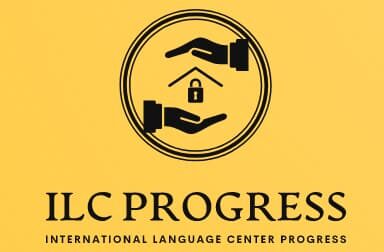Determine languages for iGaming localization
The simplest approach is to focus on the languages spoken in the markets where you plan to introduce your game, such as crypto casino free spins. This decision is primarily influenced by regulatory factors and your company’s growth strategy. The key aspect to consider is the legality of online casino games in the target jurisdiction. It is essential to comply with the legal guidelines governing online gambling and understand the specific regulations related to the content of the games.
With that in mind, here’s a rundown of the top languages you should prioritize in your iGaming localization strategy:

English:
This is no surprise. The United States, the United Kingdom, Australia and Canada are consistently among the countries that spend the most on online games. While gambling is legal in these territories, some US states have restrictions. However, as more states legalize online gambling, the English-speaking user base is expected to expand even further. Since English is the second most spoken language worldwide, it is recommended to prioritize it.
Chino:
Mainland China prohibits online gambling, but several channels allow access to iGaming sites. Estimates suggest that up to 200 million people participate in online gambling in China, although this figure may encompass other forms of online gambling. It is crucial to note that the Chinese government maintains a strict stance on online gambling and has recently intensified its crackdown on illegal operators.
FIGS (French / Italian / German / European Spanish):
These four European languages correspond to countries that are among those that spend the most on online gambling. However, navigating the regulatory landscape in Europe can be complicated, as different jurisdictions impose different rules and regulations.
Japanese:
Online gambling in Japan faces heavy regulation, making it difficult to determine accurate figures on the number of online players. However, estimates suggest that millions of people participate in online gambling in Japan, and their significant purchasing power contributes substantially to the overall market.
Brazilian Portuguese:
With a population exceeding 200 million, Brazil presents a promising market for online gambling operators in South America. The country’s burgeoning middle class and growing Internet user base offer ample opportunities for operators. Additionally, Brazil has a strong sports betting culture, particularly focused on football, which is an important segment of the global sports betting market.
No:
India, with a population exceeding 1.3 billion, is one of the fastest growing online gaming markets worldwide. The multi-billion Indian market is expected to continue expanding, driven by increased smartphone usage and internet penetration. As more Indians gain access to the Internet and become familiar with online transactions, the potential growth of the online gambling market will be substantial.
Highlighting opportunities in global online gaming markets
It is important to recognize the somewhat confusing legal status of online gambling in India, with regulations varying from state to state. However, there is growing interest from national and international companies in the Indian market. Localizing content into Indian languages can make it easier for operators to access more players and help navigate the regulatory landscape effectively.
Swedish and Norwegian:
Sweden and Norway stand out as prosperous and technologically advanced European nations with high internet penetration, smartphone usage, and disposable income rates. Both countries have a rich gambling history, albeit with state monopolies. However, recent market openings have invited international operators, intensifying competition. Operators that offer personalized experiences through localization of content into Swedish and Norwegian can gain a competitive advantage in these lucrative markets.

Spanish LATAM:
South America shows promising growth potential for the online gaming industry, particularly in countries such as Mexico and Colombia. Despite being in its nascent stages, constant growth is evident. Challenges such as regulatory issues, payment processing complexities, and competition from unlicensed operators remain. However, experts predict that South America will become one of the largest iGaming markets in the world. LATAM Spanish localization efforts can position operators for success amid this growth.
When selecting languages to localize online casino games, it is imperative to align with regulatory frameworks and expansion strategies. By localizing content in these languages, operators can improve competitiveness and maximize return on investment. A well-thought-out language choice can have a significant impact on localization efforts and pave the way for sustained success in the online gaming industry.
